Startling fact: Did you know that over 80% of gym members leave their fitness centers within the first six months—often because they feel like just another number rather than a valued individual? This statistic highlights a critical issue in the fitness industry where member retention hinges not on flashy tech or volume, but on genuine care and personalized experiences.
In this article, we explore the transformative people-first fitness approach adopted by Pivot Pilates to ensure that members receive individualized attention, heartfelt support, and tailored programs designed around their unique needs—setting them apart from generic corporate chains fixated on profits. Join us as we delve into expert insights with Glenn Morgan of Pivot Pilates, unpack industry challenges, and share actionable tips for any fitness business aiming to put people before profits.
Opening Hook: The Surprising Truth Behind Gym Member Satisfaction and Retention
Despite the booming fitness industry, many gyms face an uphill battle with member satisfaction and long-term retention. Contrary to popular belief, state-of-the-art technology and expansive class offerings don’t guarantee loyalty. What truly makes a difference is the people-first fitness approach —a philosophy emphasizing the well-being and individual goals of each member over sheer profit margins.
Glenn Morgan, owner and head instructor at Pivot Pilates in Jacksonville, Florida explains, "It's not technology that makes it the boutique, it's the individualized attention that you can't get from these corporate places or places that are trying to maximize profits by packing in as many people as possible." This approach creates an environment where members feel valued, understood, and motivated to stay on their fitness journey.
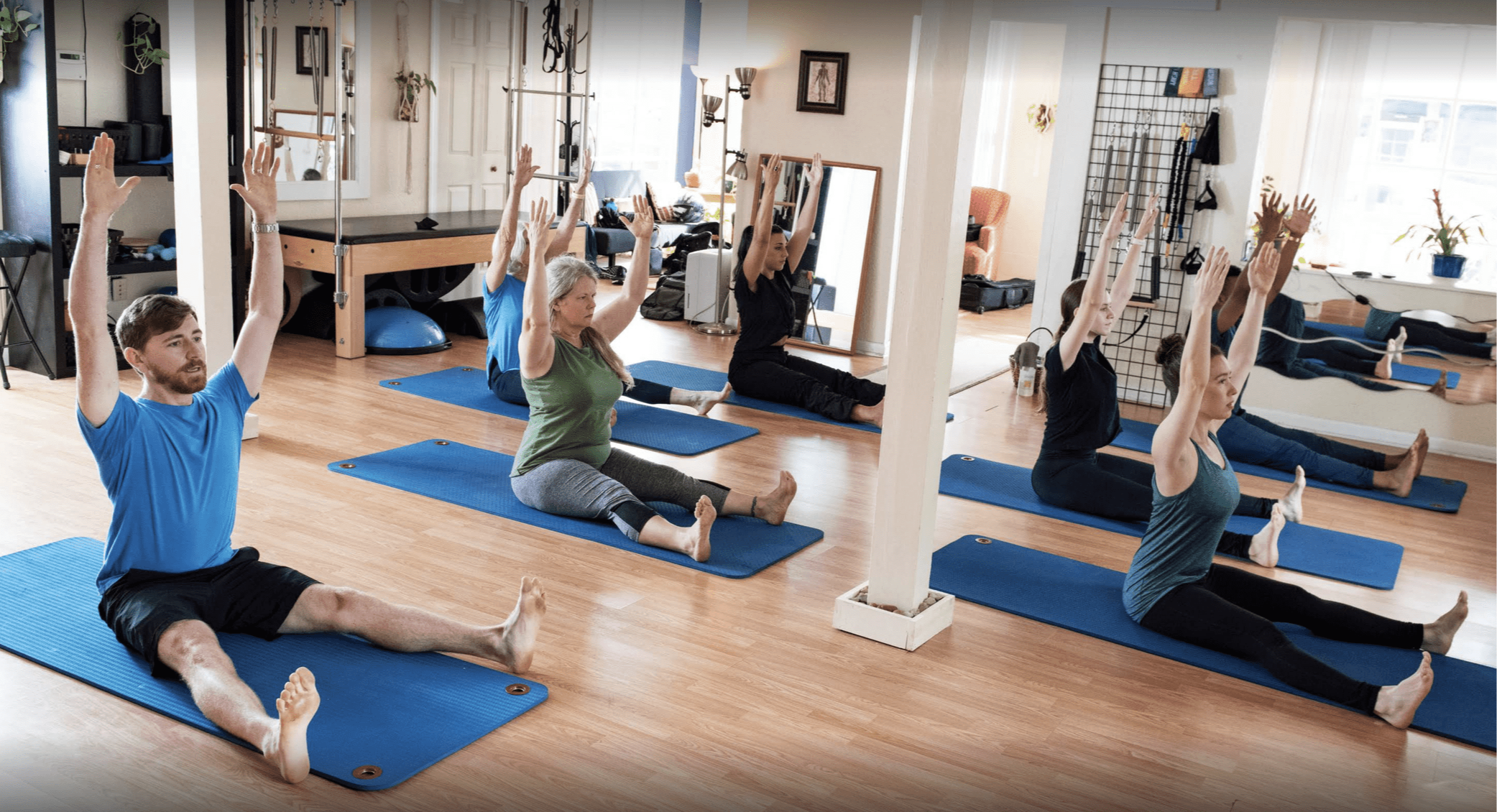
What You'll Learn: Understanding the People-First Fitness Approach in the Health and Fitness Industry
This article will provide comprehensive insights into the people-first fitness approach —defining what it entails within the fitness business, contrasting boutique gyms with larger corporate centers, and showcasing expert perspectives. You’ll learn how prioritizing members’ health and personalization leads to better outcomes, stronger communities, and sustainable growth. Plus, practical tips for implementing these principles in your fitness facility.
Defining the People-First Fitness Approach in the Fitness Business
At its core, a people-first fitness approach centers on fostering meaningful, personalized experiences that respect each member’s individuality rather than maximizing profits or class sizes.
Focus on individualized attention rather than maximizing profits. Boutique gyms intentionally keep class sizes small to ensure trainers can engage with each member personally.
Prioritizing member well-being and personalized fitness goals. Members receive tailored fitness plans that accommodate their health conditions and aspirations.
Creating a supportive and inclusive gym community. Such environments nurture emotional connections which enhance motivation and retention.
"First time trying out Pilates and I must say the instructors here are fantastic. I have enjoyed all my classes and I’m extremely happy I found this place." - Rebekah Hurst

Thoughtful personal fitness coaching exemplifying people-first care in boutique gyms.
"Pivot Pilates has been the best decision and investment in myself that I have ever made. The team here is the best. They take the time and give you the attention to make sure you are doing all the exercises correctly and safely, and you can tell they really care about us. I’ve seen such a change in how my body feels and my strength. Thank you, Glenn, Angie, and Elissa! It’s one of the best parts of my days." - Samantha Neff
Comparing Boutique Gyms and Corporate Fitness Centers
The fitness industry is largely divided between large-scale corporate gyms that prioritize volume and profits, and boutique studios dedicated to personalized experiences. Corporate gyms often overcrowd classes to maximize attendance, which can compromise the quality of instruction and member safety. Boutique gyms, by contrast, emphasize small group sizes and individual care, resulting in a higher level of satisfaction and retention.
Corporate gyms focus on volume and profit over personalized care. Large classes limit trainer accessibility, increasing injury risks and reducing motivation.
Boutique gyms emphasize quality, safety, and member experience. Smaller classes foster personalized corrections and individualized progression.
Impact on member retention and satisfaction. Personalized attention from qualified trainers improves outcomes and fosters community loyalty.
"In classes of 10, 20 people, they aren’t caring about the person, they’re caring about the profit. Our classes have a maximum of four or eight people to ensure quality." – Glenn Morgan, Pivot Pilates
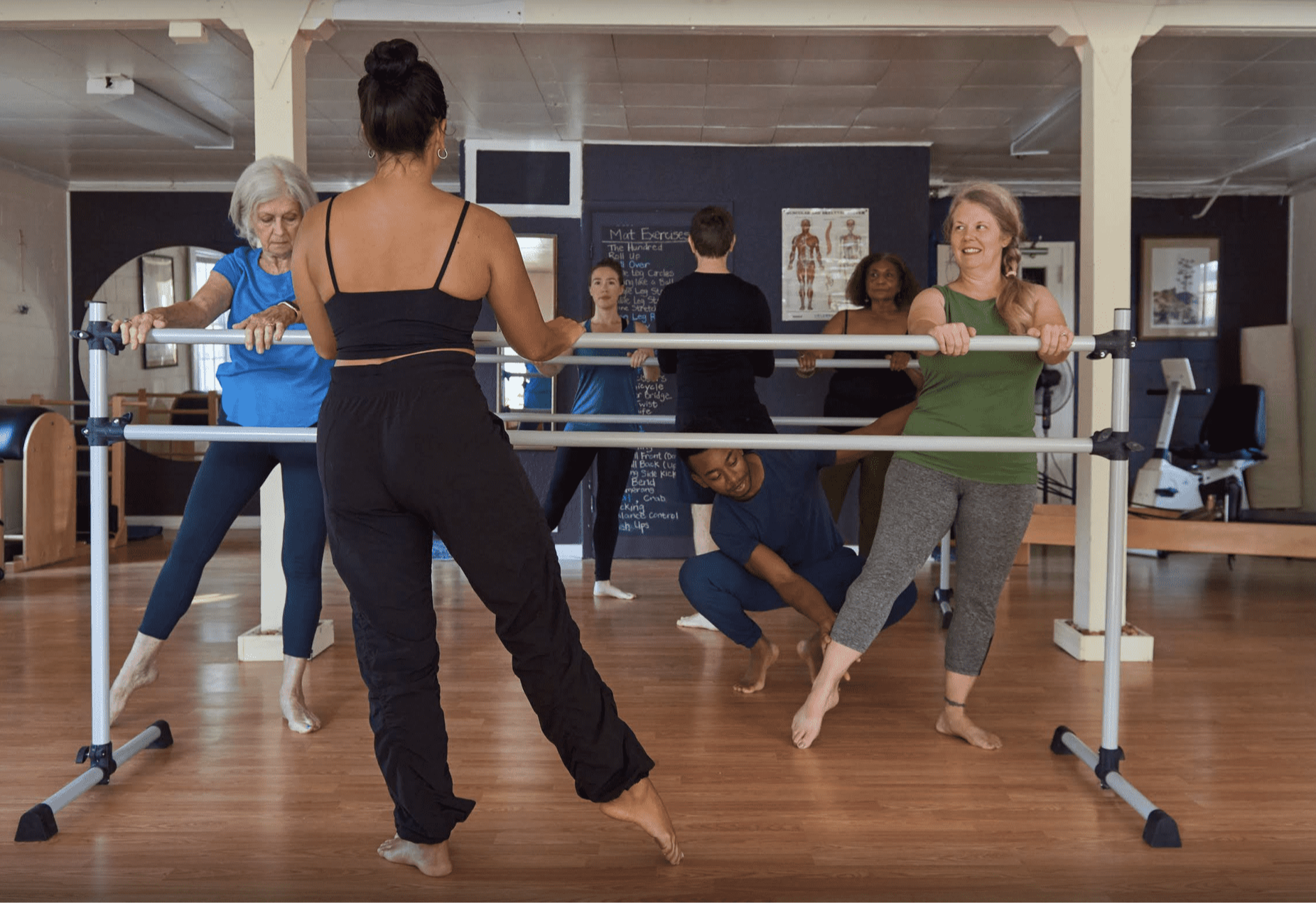
Intimate boutique gym class with focused personalized instruction supporting member success.
Expert Insights: Building a People-First Fitness Business That Thrives
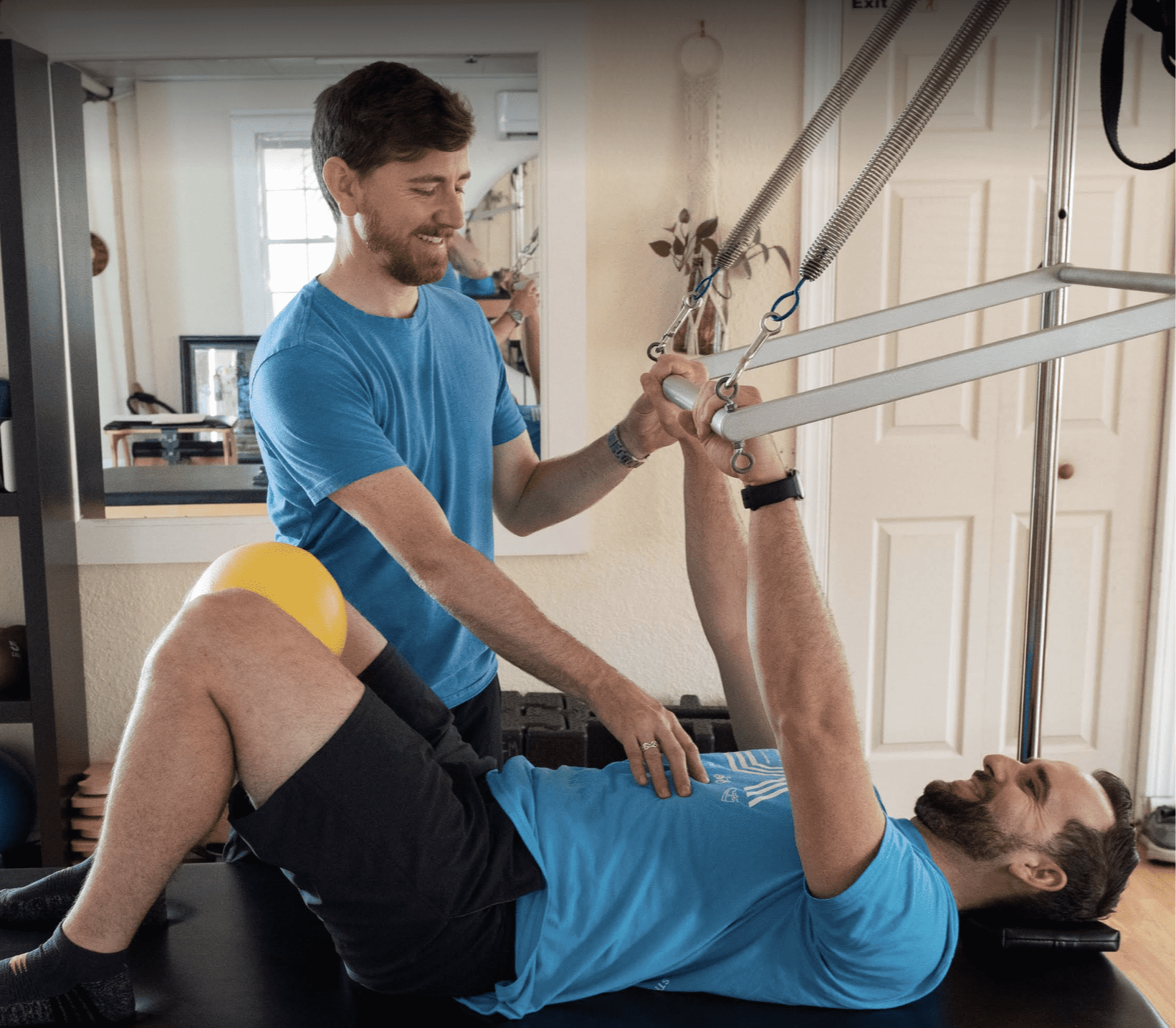
Expert trainers pursuing continuing education to deliver superior people-first fitness services.
Qualifications and Continuing Education of Trainers
Central to the people-first fitness approach is the caliber and commitment of the training staff. Boutique gyms prioritize hiring highly certified instructors capable of addressing a diverse range of client needs. Ongoing education ensures trainers remain current with the latest health and rehabilitation techniques, tailoring workouts sensitively for each client's condition.
Importance of certified, experienced instructors. Trainers hold industry-respected certifications, ensuring deep expertise.
Ongoing education to address diverse client needs. Continuing professional development improves safety and personalization.
Tailoring fitness plans to individual health conditions. Programs accommodate disabilities, chronic illnesses, and recovery needs.
"Our trainers are Balanced Body accredited, an international certification requiring at least two years of study and testing. We genuinely care and continue to grow as professionals." – Glenn Morgan, the owner of Pivot Pilates.

Dedicated trainers advancing expertise online to enhance people-first fitness experiences.
Creating a Supportive Gym Community
The social and emotional environment cultivated within boutique gyms is a cornerstone of their people-first philosophy. Encouraging authentic connections among members not only fosters friendship and support but also builds business networking opportunities. This holistic care of the “whole person” strengthens commitment and overall wellbeing.
Fostering emotional and social connections among members. Members feel welcomed and valued beyond physical fitness.
Encouraging business networking and friendships. The gym acts as a community hub enhancing social capital.
Valuing member feedback and personalized care. Member voices influence service improvements and culture.
"People may not remember what you say, but they’re going to remember how you make them feel. Our gym cares about the whole person, not just the physical." – Jena Wilford, Pivot Pilates.

Friendly gym community embodying a people-first fitness approach with warmth and support.
Common Misconceptions and Mistakes in the Fitness Business
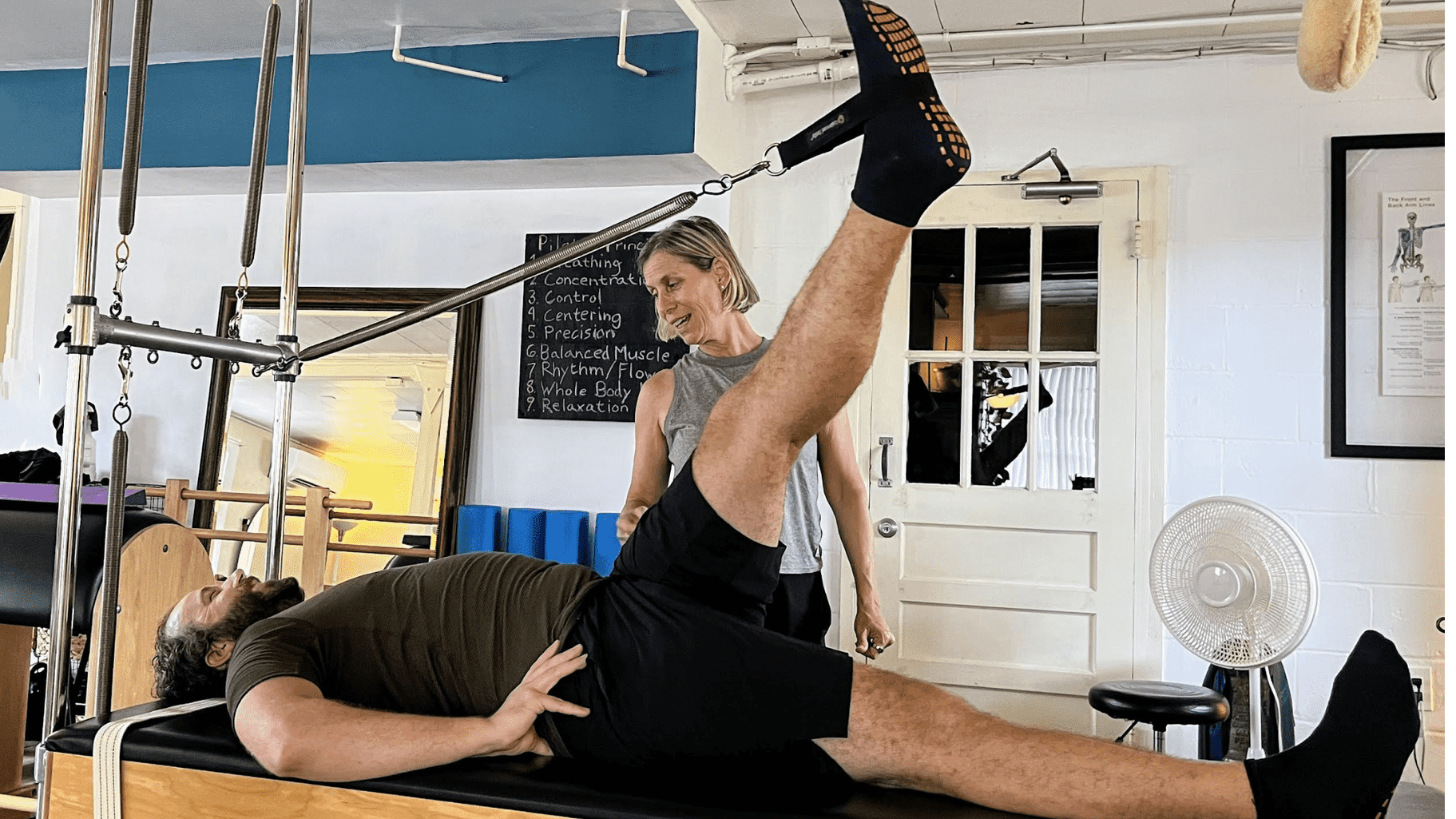
Overcrowded corporate gym classes often neglect individualized care, harming member well-being.
Assuming technology alone drives member satisfaction. High-tech equipment can’t replace personal attention.
Overcrowding classes to maximize profits. Large groups reduce safety and trainer effectiveness.
Neglecting individualized care and member well-being. A generic, volume-driven approach alienates members.
"There’s a pseudo Pilates movement where the goal is to see how many people they can get through in a day, which can lead to injuries instead of improvement." – Glenn Morgan of Pivot Pilates.
Actionable Tips for Implementing a People-First Fitness Approach
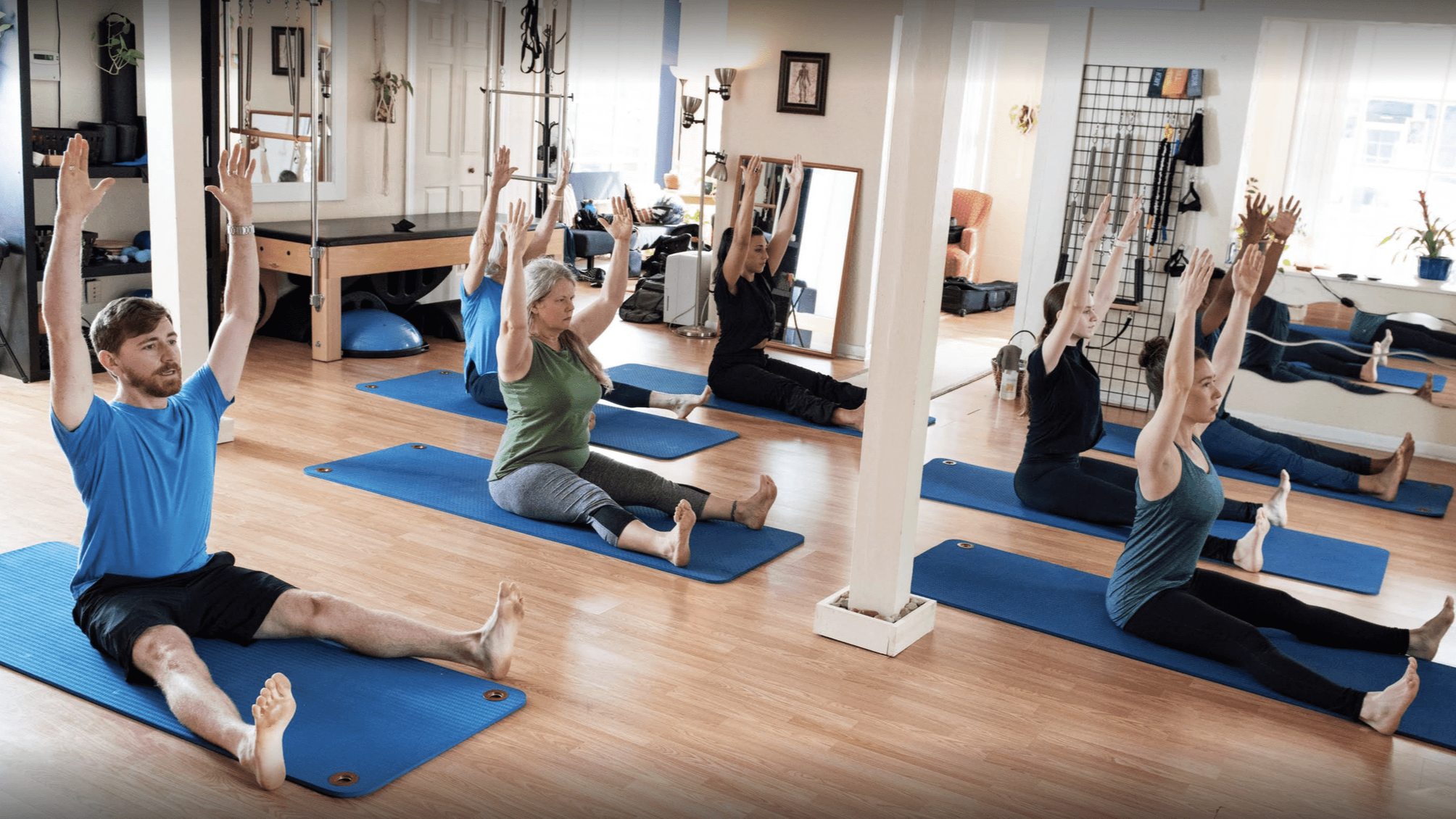
Small group session highlights the effectiveness of personalized coaching in people-first fitness.
Evaluate instructor qualifications and commitment to continuing education.
Limit class sizes to ensure personalized attention and safety.
Foster a welcoming and supportive community environment.
Use technology to complement, not replace, personal interaction.
Encourage member feedback and adapt services accordingly.
People Also Ask: Addressing Common Questions About People-First Approaches
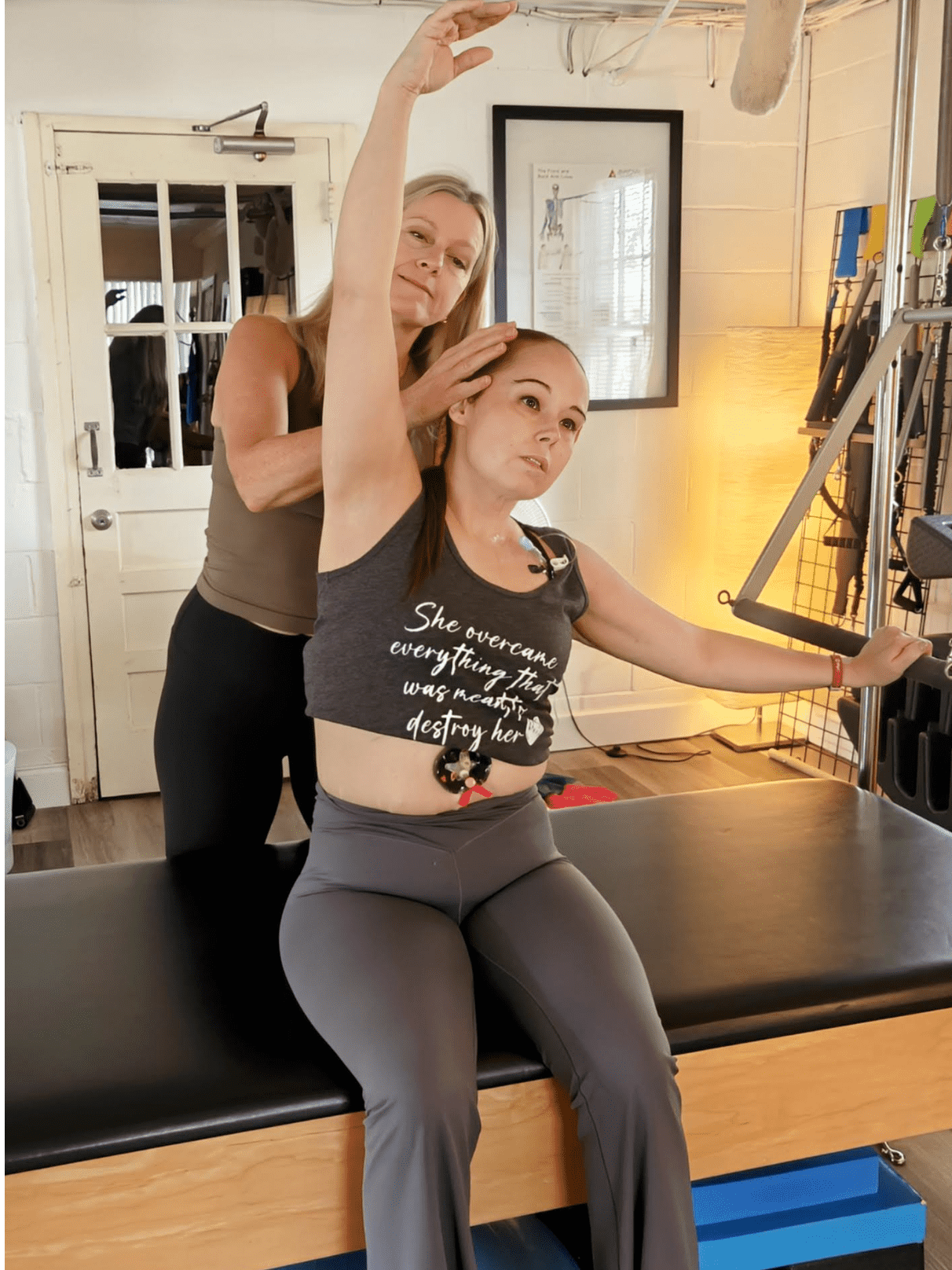
What is a people-first approach?
A people-first approach prioritizes the needs, experiences, and well-being of individuals above profits or efficiency. In fitness, this means personalized attention, customized plans, and fostering community support.
What are people's first principles?
People's first principles focus on dignity, respect, empathy, and individualized care, ensuring every person feels valued and supported in their goals.
What is the employee-first approach?
The employee-first approach emphasizes the well-being and empowerment of employees, believing that satisfied staff deliver better service to clients, which aligns closely with a people-first philosophy.
What is an example of putting people first?
An example is a boutique gym limiting class sizes to maintain quality coaching and adapting exercises to individual member needs rather than maximizing class occupancy for profit.
Table: Comparing People-First Boutique Gyms vs. Corporate Fitness Centers
Aspect |
People-First Boutique Gyms |
Corporate Fitness Centers |
|---|---|---|
Class Size |
Small (4-8 members) |
Large (20+ members) |
Trainer Qualifications |
Highly certified, ongoing education |
Variable, often minimal |
Member Experience |
Personalized, supportive |
Generic, profit-driven |
Community |
Strong social connections |
Limited interaction |
Pricing |
Premium, value-based |
Low-cost, volume-based |
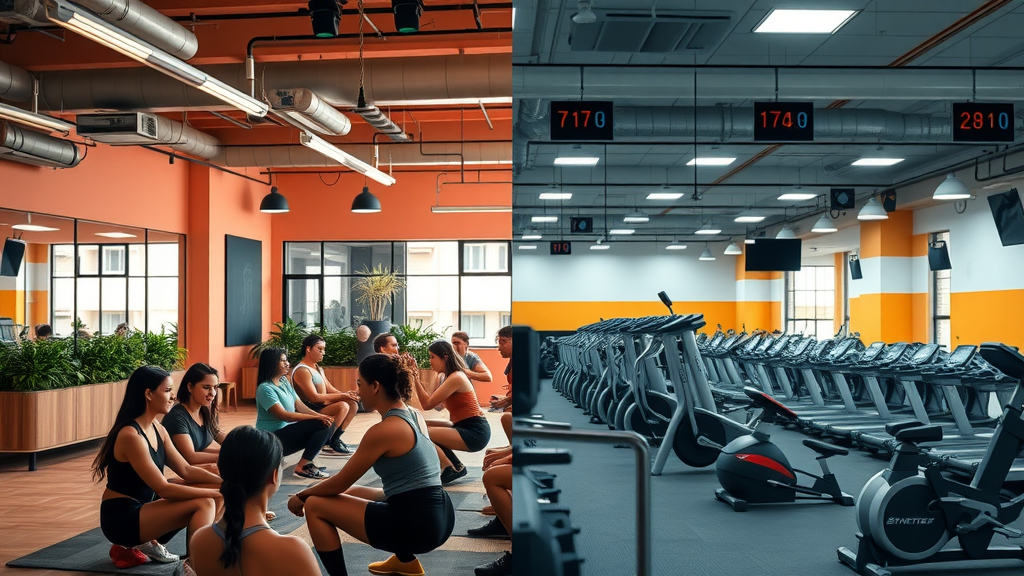
Contrasting fitness environments: intimate boutique gym versus crowded corporate gym reflecting different business models.
Key Takeaways: Why a People-First Fitness Approach Matters
Personalized care leads to better health outcomes and greater member satisfaction.
Qualified trainers and small class sizes reduce the risk of injury and improve results.
A supportive community enhances emotional well-being and fosters lasting relationships.
Prioritizing people over profits builds loyalty and sustainable business growth.
Conclusion: Embracing a People-First Fitness Approach for Sustainable Success
As this exploration into the people-first fitness approach illustrates, boutique gyms like Pivot Pilates are redefining success by putting members at the heart of their business. Their focus on individualized attention, certified trainers, intimate class sizes, and community building creates an environment where every member feels valued, safe, and motivated to achieve their best health.
Glenn Morgan sums it up: "We just really want people to come as they are and tell us what we can do to help them. The only requirement is to want to feel better than they do today." Embracing this mindset not only benefits members but also ensures sustainable growth and long-term loyalty for fitness businesses willing to prioritize people over profits.
Call to Action
Are you ready to transform your fitness business with a people-first fitness approach? Start by evaluating your trainer qualifications, reducing class sizes, and cultivating a genuine community where members feel uniquely supported. Reach out to boutique gyms like Pivot Pilates for inspiration, and consider how you can implement personalized care strategies today to foster loyalty and improve member satisfaction. Remember, the future of fitness belongs to those who put people first.
 Add Row
Add Row  Add
Add 




Write A Comment